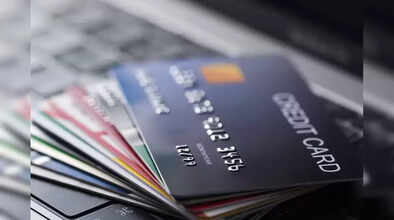Credit Card: If you ignore these 5 things in your credit card bill, you will have to pay heavily..

Credit card: This small piece of plastic makes our lives so easy, doesn't it? Be it shopping, paying bills, or any emergency, it always comes in handy. But this facility has a price, which we have to pay at the end of the month in the form of a credit card bill, and this is where most people make a big mistake.
They do not understand the bill properly and unknowingly trap themselves in a big debt trap. If you too are not understanding these 5 things written in your credit card bill, then believe me, you can get cheated. Let's understand the way to avoid it-
Mistake number 1: The dangerous trap of 'Minimum Amount Due'
This is the biggest and most attractive trap laid by credit card companies. There is a 'Total Amount Due' in your bill, and a small 'Minimum Amount Due' is written below it. Most people think that if they pay the minimum amount, things will be fine and they will not be called defaulters.
What is the truth
Paying the minimum amount only saves you from late payment fees, not from the storm of interest. As soon as you pay just the minimum amount, the bank starts charging heavy interest on the entire remaining amount.
Understand with an example.
Your total bill: Rs 20,000
Minimum amount (usually 5%): Rs 1,000
You paid: Rs 1,000
Outstanding amount: Rs 19,000
You will think that now interest will be charged only on Rs 19,000. But this is not so! This is where the second game starts.
Mistake number 2: Not understanding the game of interest (Finance Charges)
The interest on a credit card (called a finance charge) is much higher than that of any other loan. This can range from 36% to 48% per annum. And it is very important to understand how it is charged.
The dangerous game of interest
As soon as you do not pay the entire bill on the due date, you lose your 'interest-free period'. Now the bank will not only charge interest on your outstanding Rs 19,000, but it will also charge interest on your original Rs 20,000 from the date of purchase. Also, any new purchase you make next month will start charging interest from the first day itself. Meaning, you get caught in a cycle where your bill keeps increasing every month due to interest.
Mistake number 3: Confusion of billing cycle and due date
These two dates are very important.
Billing cycle: This is usually a period of 30 days, during which a bill is generated for whatever you spend. For example, from 10 August to 9 September.
Payment Due Date: This is the last date after the bill is generated by which you have to make the payment. This is 15-20 days after the billing cycle ends. For example, if the bill is generated on 9 September, the due date can be 29 September.
How to take advantage
If you make a big purchase at the beginning of your billing cycle (such as on 10 August), then you can get a long interest-free period of about 50 days to pay the bill.
Mistake number 4: Not paying attention to hidden charges
Your credit card bill is not just an account of interest. There are many other charges in it, which we often ignore.
Late payment fee
This fee is charged if even the minimum amount is not paid by the due date, which can be from 500 to 1200 rupees or more.
Over-limit fee
If you spend more than your credit limit.
Cash advance fee
A charge levied on withdrawing cash from an ATM through a credit card, on which interest is charged from the first day itself.
18% GST is levied separately on your interest, late fee, and all other charges, which further increases your bill.
Mistake number 5: Forgetting the impact on credit score
This is the biggest and long-term disadvantage. When you repeatedly pay only the minimum amount or delay the payment, it directly lowers your CIBIL or credit score.
What is the disadvantage
A bad credit score means that it will be difficult for you to get any loan (home loan, car loan, personal loan) in the future and even if you get it, it will be at a very high interest rate. This small mistake can spoil your big dreams.
Disclaimer: This content has been sourced and edited from Zee Business. While we have made modifications for clarity and presentation, the original content belongs to its respective authors and website. We do not claim ownership of the content.

